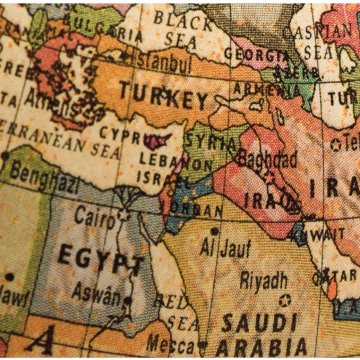- About
- Topics
- Story
- In-Depth
- Picks
- Opinion
- News
- Donate
- Signup for our newsletterOur Editors' Best Picks.Send
Read, Debate: Engage.
After such a tumultuous year, we were all hoping for a pleasant January; one in which we could make our predictions for the year ahead, while reflecting on the year that was. After all, 2015 was the year the refugee situation from the Middle East became an international crisis, the year that the world was supposed to move ahead on climate change together, the year that began and ended with terrorist atrocities in the French capital. We wanted to think about it all – digest it – understand where we were going, and if we didn’t like that path, change it in this next year with renewed vigour and clear minds.
But we didn’t realise that our bold stride into 2016 would be so sharply, and embarrassingly cut short. There we were, slamming last year’s door shut, stepping out, breathing in the crisp January air, and before we even got to the garden gate, we were faced with yet another hurricane of tremendous force. If only we’d worn a raincoat.
With the execution of Shia cleric Sheikh Nimr al-Nimr by Saudi Arabia, (an execution internationally condemned), the tension between Middle Eastern states is beginning to break down into desperate diplomatic games. Iranian ambassadors to Saudi Arabia and Bahrain have been asked to leave the nations; Iran has reciprocated the offer. The majority Shia Iran led the protests in the UN for al-Nimr’s innocence; his only crime was to criticize the Saudi establishment as a Saudi resident.
The Guardian wrote: “ “The move on Sunday evening came after two days of outrage among Shia communities across the Middle East and in south Asia at the death of Nimr, a prominent critic of the Saudi and Bahraini monarchies, whose cause as a prisoner since 2012 had been championed by Tehran and the United Nations. It signals a further hardening of Riyadh’s position towards Iran, with which it is locked in a bitter battle for regional influence.”
So it comes down to that much – a battle for regional influence. That might be true enough, but the execution of a religious leader by a rival, known for its aggressively fundamentalist interpretation of Islam will not be understood or appreciated as simply a political tactic. It will reignite the Sunni/ Shia conflicts of old, and we can expect a lot more low-level everyday violence against minority communities. It goes far beyond this author’s knowledge to judge, but it wouldn’t be surprising to see if ISIS were going to make political capital out of regional instability and minority persecution.
To see only blood and guts might be a symptom of our time, but it’s becoming harder and harder to believe that grievances of this kind will be peacefully managed. Indeed, one of the totalizing elements of our time is weaponization – generally speaking, it doesn't matter what you think or feel, it doesn't matter how legitimate your grievance - whoever has the most guns wins. Now it seems the big guns of the Middle East will begin to go at it, at least in political and everyday terms – and we didn’t even bring an umbrella.
